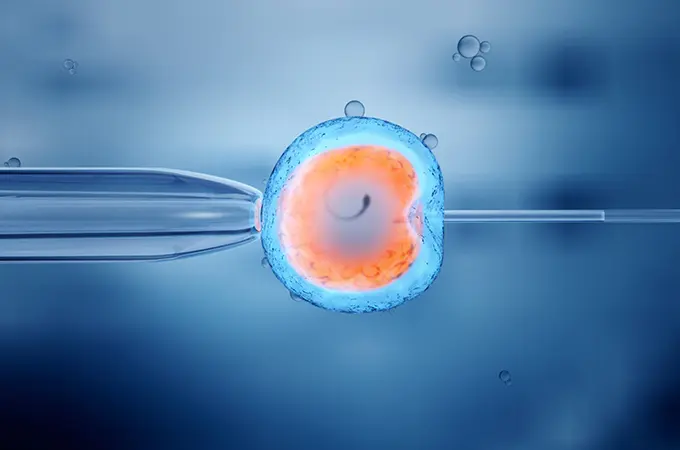Why Georgia Is Becoming a Surrogacy Hub and the Role of Dr. HIT Batumi
Surrogacy is a complex, deeply emotional journey. For many intended parents around the world, one of the biggest decisions is where to carry it out. Over the past decade, Georgia (the country in the Caucasus) has emerged as a fertile ground for surrogacy and fertility services. Relaxed law frameworks, relatively lower costs, and growing infrastructure have drawn international attention. One name that frequently arises in this context is Dr. HIT Batumi, whose clinic in the Georgian coastal city is positioning itself as a destination for surrogacy, donor egg services, and embryo transfer logistics.
Surrogacy in Georgia: Legal Landscape & Eligibility
First, a necessary caveat: laws and regulations in Georgia are evolving. What’s legal today might shift depending on parliamentary changes or government policy.
-
Currently, gestational surrogacy is legal in Georgia. That is, a surrogate carries an embryo created from another woman’s (or the intended mother’s) eggs and the intended father’s (or donor’s) sperm. The surrogate must not have a genetic link to the child.
-
After birth, the intended parents are immediately recognized as the legal parents. The surrogate and donors have no parental rights under Georgian law.
-
The intended parents are usually required to be a heterosexual couple, either legally married or in a de facto relationship for at least one year.
-
Eligibility is more restricted for same-sex couples or single men — many sources state these are not allowed under Georgian surrogacy laws.
-
Surrogacy law in Georgia does not require a prolonged adoption or court battle post-birth. The birth certificate is issued with the intended parents’ names, without requiring the surrogate’s consent at that point.
-
That said, in 2023 a draft law was introduced to ban commercial surrogacy, or restrict it to altruistic surrogacy for Georgians only. That would exclude foreign intended parents and eliminate financial compensation beyond cost-reimbursement. But as of now, that law has not been passed.
-
Some diplomatic sources warn that should the ban pass, children born under unauthorized surrogacy arrangements may face difficulty in leaving Georgia.
Given this, many international clients are still considering Georgia — though with close legal monitoring to ensure compliance and future stability.
Why Dr. HIT Batumi Is Gaining Attention
The Batumi clinic of Dr. HIT has become part of this growing surrogacy ecosystem. Based on public social media presence and fertility marketing, here are some of the features that make it notable:
-
It markets itself as a fertility and surrogacy center with relaxed fertility laws and fewer age or regulatory constraints than some Western countries.
-
The clinic emphasizes its success rates, experience (often tied to the broader Dr. HIT group), and comprehensive services — from donor matching to embryo transfer and pregnancy support.
-
Being in Batumi gives proximity to both the Georgian fertility regulation framework and accessible logistics for clients from Europe, the U.K., and beyond.
-
Dr. HIT’s presence there helps funnel patients who might otherwise have chosen clinics elsewhere (e.g. Ukraine, the Balkans) into Georgia.
Because Georgia already had an established reputation in reproductive tourism, clinics like Dr. HIT Batumi ride on that momentum.
The Flow of Donors, Embryos, and Cross-Border Logistics
One of the fascinating phenomena in modern fertility / surrogacy networks is the movement of eggs, embryos, and gametes across borders. Georgia’s relatively permissive IVF and embryo laws make it a conduit for some of these flows.
-
Intended parents in the U.S., U.K., or Europe may collect eggs or embryos in their home country (or via donor banks there), then ship embryos to Georgia for transfer into the surrogate. This approach allows clients to retain control over donor selection under their home regulations, but leverage Georgia’s surrogacy-friendly infrastructure.
-
Georgia’s law allows imported embryos, which is one of the draws: some countries restrict cross-border embryo transfer.
-
Donor eggs may also be flown or couriered into Georgia, or matched from Georgian donor pools, depending on the clinic’s network.
-
Embryo couriering requires strict compliance: preservation standards, import/export regulatory compliance, chain-of-custody validation, and legal documentation. Many top clinics partner with logistics experts to safely transport frozen embryos or gametes internationally.
-
Because Georgia is geographically accessible from Europe and Asia, and because many major airports serve Batumi or nearby Tbilisi, the transport challenges are manageable for many clients.
These flows create a hybrid model: intended parents can marry the best of both worlds — donor selection in one country, surrogacy in another.
What the Surrogacy Process Typically Looks Like in Georgia (and via Dr. HIT Batumi)
Putting it all together, here’s a simplified outline of how a cross-border surrogacy journey via Georgia might work (with or through Dr. HIT Batumi):
-
Intake & Legal Counseling
Intended parents (often from abroad) undergo legal consultation to ensure their home country or origin country will recognize the child. The Georgian surrogacy legal framework is explained, including parental recognition, surrogate waivers, and legal contracts. -
Donor / Egg / Embryo Preparation
If donor eggs are needed, you either choose from a Georgian pool or import donor eggs / embryos from abroad. Or you may use your own eggs (if viable).
Embryos are created in a partner IVF lab or imported under regulatory safeguards. -
Matching with Surrogate
The clinic (like Dr. HIT Batumi) presents pre-screened surrogate profiles. We go through medical, psychological, lifestyle screening to ensure suitability under Georgian law. -
Legal Contracts
A surrogacy agreement is drafted, reviewed by independent counsel for both parties, defining responsibilities, compensation (or cost reimbursement), medical care, pregnancy monitoring, and parental rights. -
Medical Preparation & Transfer
The surrogate is medically prepared with hormonal protocols. The embryo is transferred (fresh or frozen). The clinic monitors early pregnancy outcomes. -
Pregnancy & Birth
Regular antenatal visits, ultrasound scans, labs, and ongoing monitoring follow. As birth approaches, the birth plan, hospital logistics, and legal document finalization are coordinated. On delivery, the child is registered immediately under the intended parents’ names. -
Post-Birth & Exit Logistics
Intended parents complete any necessary home-country legal steps for entry, visa or citizenship, or recognition of parenthood. The clinic helps with documentation, exit permits, and logistics for leaving Georgia with the newborn.
Challenges, Risks & Considerations
While Georgia offers compelling advantages, there are also serious risks and uncertainties to consider:
-
The proposed ban on commercial surrogacy for foreign intended parents (if enacted) could disrupt ongoing arrangements or prevent new ones.
-
Legal recognition in your home country may be complex. Some countries do not automatically accept surrogacy births from abroad and may require adoption or special court orders.
-
Transporting embryos or eggs across borders involves regulatory, logistical, and quality-control challenges.
-
Surrogate rights and protections must be contractually safeguarded; ethical risks exist if oversight is lax.
-
Political or legal changes in Georgia may affect surrogacy laws or enforcement retrospectively.
Final Thoughts
Georgia has quietly become a surrogacy destination of choice for many international clients — combining legal permissiveness, cost-efficiency, and fertility infrastructure. Clinics like Dr. HIT Batumi are capitalizing on this momentum, offering full-service care from donor matching to embryo couriering to birth logistics.
However, success in surrogacy abroad depends not only on medical excellence but careful legal planning, ethical diligence, and understanding shifting regulatory landscapes. If you’re considering Georgia as your surrogacy destination, do your research, work with reputable clinics and law firms, and stay informed about legislative changes.
For any of your fertility problems, please do not hesitate to contact us. At Fertility Solutions we pride ourselves with the excellent tailored personal care we provide to our patients for their specific needs. A team member will contact you as soon as we get your message, and construct a personal treatment plan for your fertility problems in the country of Cyprus. You can also contact our clinics directly through the links below.
Get in Touch with Our Clinics:
Cyprus Crown IVF Contact: https://en.cypruscrownivf.com/contact
Cyprus American IVF Contact: https://www.cyprusamericanivf.com/contact-us/
Dr. Halil Ibrahim Tekin (Dr. HIT) Youtube: https://www.youtube.com/@dr.halilibrahimtekin1715
Cyprus American IVF Youtube: https://www.youtube.com/@AmerikanTupBebekMerkezi




